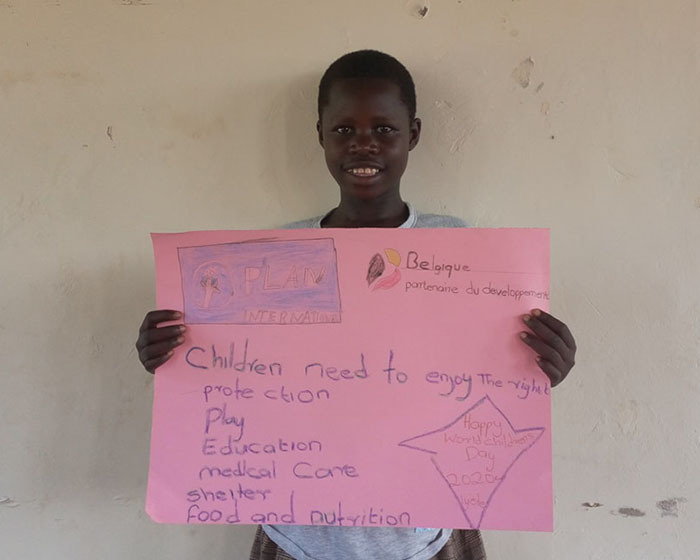PlayMatters: New initiative to support refugee toddlers launched
The community launch, follow the national launch which was done last month at State House, by the First Lady and education minister Mrs. Janet Museveni.
EDUCATION|PLAYMATTERS|REFUGEES
ADJUMANI - PlayMatters, a new initiative aimed at delivering play-based learning to refugee and host community children in Uganda has been launched at Adjumani refugee settlement on Friday (November 20, 2020)
The event, started with an official briefing in Adjumani at Dubain Hotel, was officiated by the head of the Programmes at Plan International, Greg Lavender; on behalf of the Consortium implementing the project.
The community launch, follow the national launch which was done last month at State House, by the First Lady and education minister Mrs. Janet Museveni.
The five-year PlayMatters project aims at strengthening children's resilience and building their social, emotional, cognitive, physical, and creative skills through play-based learning.
Play is a natural way for children to learn and develop, with research showing that it is one of the most critical ways to help children build essential skills and resilience especially for refugee children who have been impacted by traumatic events.
The event highlighted that Learning through play, sparks a love for learning that stays with children for a lifetime.
Calls for action were made to strengthen the use of play as a method of teaching and learning in pre-primary and primary schools among learners aged 3-12+.
Lavender says that the support to the refugee and community children, "Is expected to set a good foundation for children's learning."
"The future of these children is in our hands and we must pay attention to their learning. The more we continue to make it playful, the more they will like it, and the better they will understand what is being taught," he explained.

Who is behind the project?
The project is funded by the LEGO Foundation and implemented by a consortium led by the International Rescue Committee, in partnership with Plan International, War Child Holland, the Behavioural Insights Team, and Innovations for Poverty Action. The overall grant is $100 million covering Uganda, Ethiopia, and Tanzania.
PlayMatters will work in partnership with various actors including parents, caregivers, educators, and policy makers to increase appreciation, skills, and motivation to support children learn through play.
The project has come at a critical time when school learning has been disrupted by the COVID-19 pandemic.
Ministry of Education has been supporting home-based learning through distributing print materials, radio, and television teaching, which has proven to be an asset in ensuring that learning continues despite school closures.
‘To complement these efforts, PlayMatters in Uganda developed and distributed "PlayMatters at Home" Learning packets for children, and an educator's guide containing simple learning games which can be played at home,'' said Martin Omukuba, Regional Director of PlayMatters.
"This support will continue when schools fully reopen as the project also aims to lay foundations for fostering learning through play within existing learning structures and systems."
In Uganda, the implementation of PlayMatters will start in 10 refugee-hosting local governments in Kyegegwa, Isingiro, Kikuube, Lamwo, Arua, Madi Okollo, Terego, Obongi, Yumbe, and Adjumani districts.
Ultimately, PlayMatters' ambition is that playful learning will grow and remain entrenched in the education services of the country long into the future.